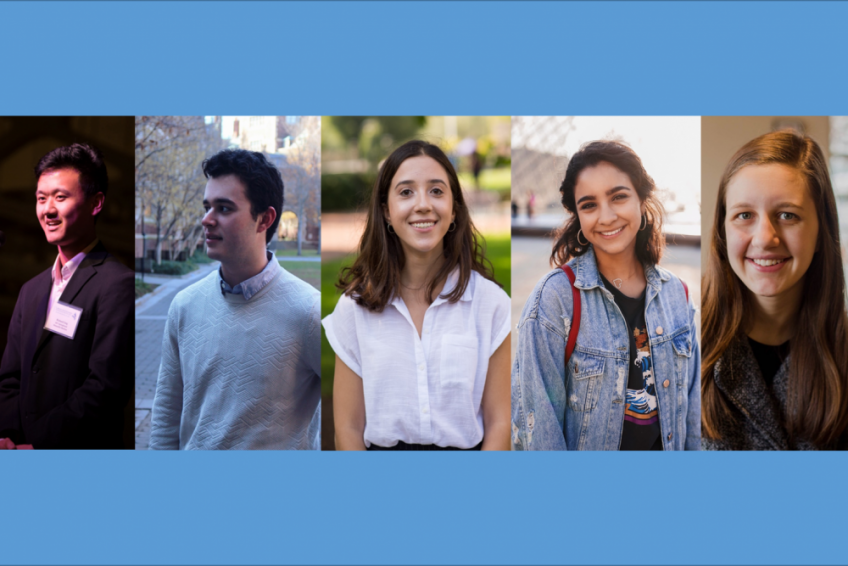2018-2019 Shah Prize Winners

Richard Ling (E’20, C‘20), Harrison Feinman (C’22), Eva Gonzalez (C’22), Hadeel Saab (C’20), and Anna Waldzinska (C’20)
Richard Ling
Richard Ling (E’20, C‘20) proposes to advance university-assisted environmental and environmental health education in West Philadelphia schools. This new project builds upon the work of his nonprofit and Penn club, Sustainable Solutions (SS). SS strives to facilitate and implement localized solutions to the UN Sustainable Development Goals (SDGs), with particular emphasis on those that are especially pertinent to Philadelphia's local needs, which include SDG 3 (Good health and well-being), SDG 4 (Quality education), SDG 6 (Clean water and sanitation), and SDG 7 (Affordable and clean energy). The Shah Prize will help expand this work so that Richard can mobilize the vast array of resources across Penn, including ABCS and non-ABCS partnerships, to advance environmental educations partnerships, K-16+, that are focused on learning about the environment through local environmental improvement. SS has developed numerous partnerships with relevant organizations around Philadelphia, including the Penn Water Center, UN Environment, the Kleinman Center for Energy Policy, Essity North America, and The Green Program. The proposed work would connect existing and generate additional ABCS partnerships that would work with specific K12 teachers and schools and build a base for further development.
Harrison Feinman, Eva Gonzalez, Hadeel Saab & Anna Waldzinska
Harrison Feinman (C’22), Eva Gonzalez (C’22), Hadeel Saab (C’20), and Anna Waldzinska (C’20) propose to build upon the success of the fall 2018 Penn Leads the Vote (PLTV) re-launch and Professor Emily Falk’s fall 2018 COMM 310 ABCS class that worked with PLTV. With the Shah Prize, this group will advance academic partnerships (e.g., ABCS classes, independent study, senior research, and/or thesis projects, etc.) that would focus on increasing voter engagement at Penn and in the community. First, the students will advance their own academic projects, which include: 1) further analyzing COMM 310 data from fall 2018 voter engagement experiment to answer questions about what worked and what didn't to increase voter turnout, to explore the effects of social network composition on voter turnout, and to further probe whether there are other demographics that might be relevant targets for future engagement (e.g., analyzing turnout data by different majors); 2) conducting an analysis on the operational side of what worked and what needs improvement to more effectively reach the Penn community (e.g., exploring options for working with administrators earlier to get better engagement with the dorms; looking at possible connections to Penn's student-wide communication systems such as Canvas and Penn-In-Touch, etc.); and 3) evaluating strategies that are specifically efficacious for younger people to advance civic engagement, democratic development and voter participation. These projects will help them demonstrate to other students and faculty the opportunities for ABCS research and ABCS classes in the areas of civic engagement, democratic development, and voter participation. Second, their work will include meeting with faculty and students across Penn's schools and across many disciplines to cultivate new ABCS partnerships in this area.
Read the announcement HERE!
